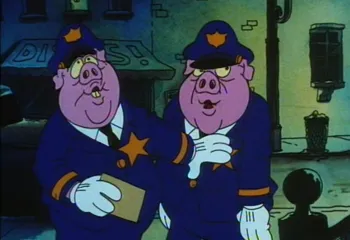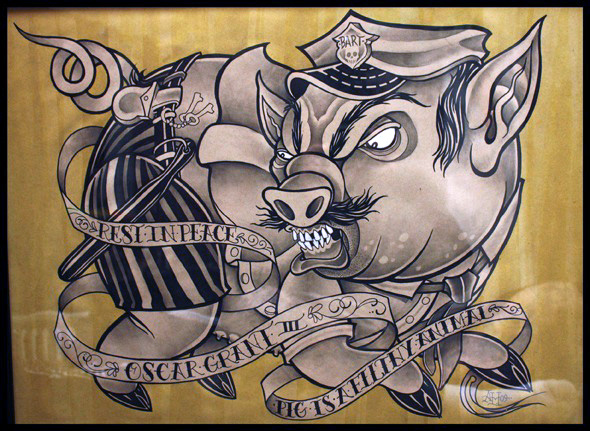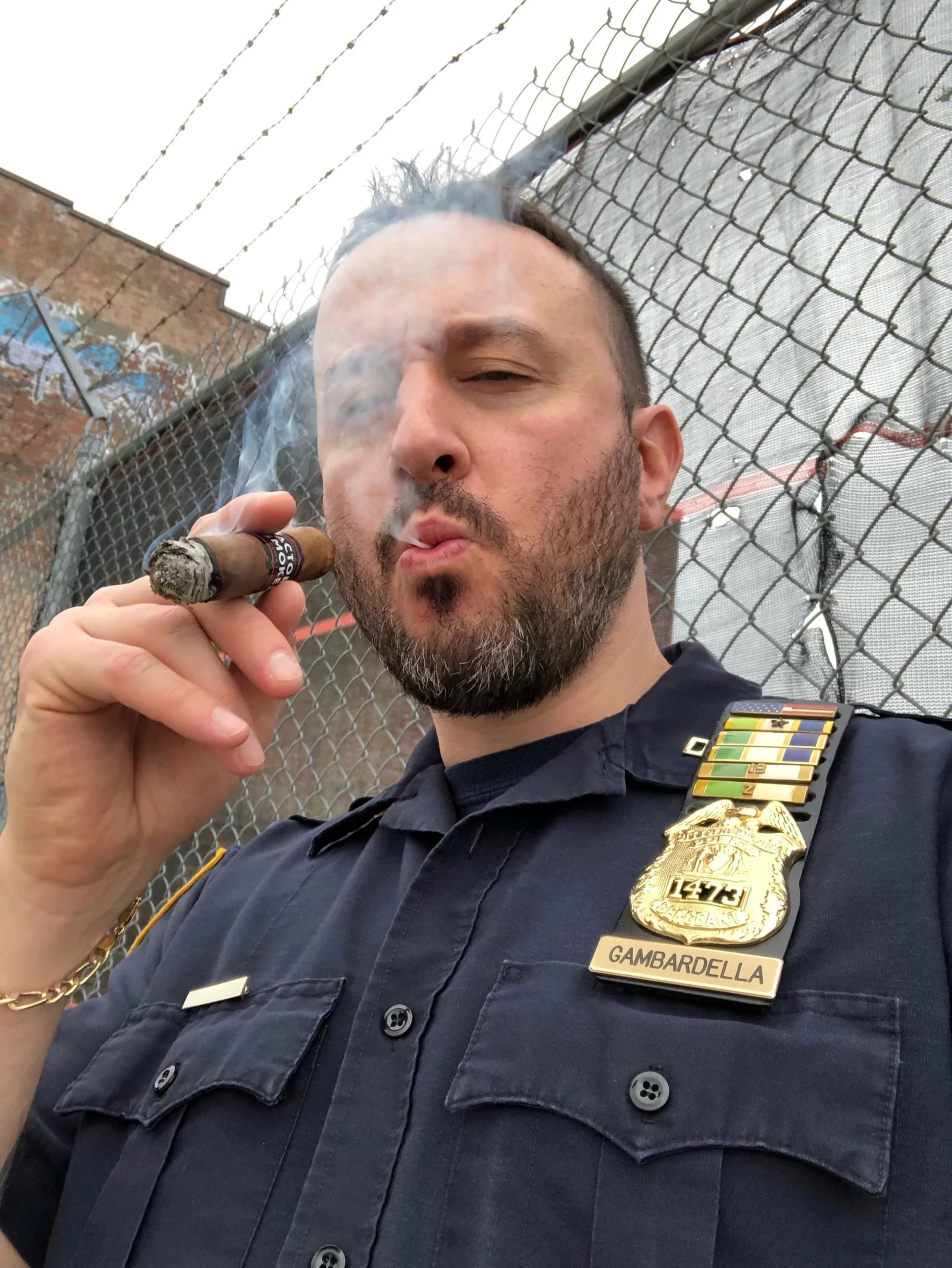Can I Post a Cops Address?
YOU CAN IF……
, If there is no TRUE-THREAT attached and the copy of the assessment roll that is located in an assessor’s office or accessible through computer terminals located in county offices,
nor do they affect the contents of the assessment roll.
Let’s say some cop wronged you but worse committed or concealed his own crimes! He is a police officer bound to obey all laws, but if you could bring this to the public’s attention with a news leaflet or flyer or website that was used to get attention to his behavior and form a gathering called a PEACEFUL ASSEMBLY then that would be exercising your freedom of speech.
You however cannot post the address and tell people or the officer that you are going to TRUE THREAT to HARM THEM. You also cannot encourage others to commit a TRUE THREAT to HARM THEM
 Posting Police Officer’s Name On Internet Found Legal
Posting Police Officer’s Name On Internet Found Legal
First Amendment grounds But Repercussions Troubling For Florida Man
A Florida man arrested for posting a local police officer’s address on RateMyCop.com won a lawsuit on First Amendment grounds but has had problems getting a job since his arrest. -db
RateMyCop User Ensnared in ‘Dumbest Case Ever’
A Florida man arrested and briefly jailed for posting a local police officer’s home address on a cop-rating site said Wednesday his ordeal was “completely crazy.” “Just because I posted it, I got arrested. It wasn’t like it was the Pentagon Papers,” Robert Brayshaw, a 35-year-old Tallahassee man, said in a telephone interview. Brayshaw’s comments….. A Florida man arrested and briefly jailed for posting a local police officer’s home address on a cop-rating site said Wednesday his ordeal was “completely crazy.”
A Florida man arrested and briefly jailed for posting a local police officer’s home address on a cop-rating site said Wednesday his ordeal was “completely crazy.”
“Just because I posted it, I got arrested. It wasn’t like it was the Pentagon Papers,” Robert Brayshaw, a 35-year-old Tallahassee man, said in a telephone interview.
Brayshaw’s comments came hours after the deadline passed for Florida to appeal a federal judge’s decision declaring the First Amendment trumped Florida’s law meant to protect the privacy of police officers. Brayshaw, who is now unemployed, said it has been difficult to get a job because of his 2008 arrest. He spent nearly three hours in jail and was prosecuted under a 1972 statute making it unlawful to publish personally identifying information of a police officer.
 Florida and Tallahassee authorities agreed to pay $60,000 in damages and legal fees to Brayshaw and his lawyers from the American Civil Liberties Union.
Florida and Tallahassee authorities agreed to pay $60,000 in damages and legal fees to Brayshaw and his lawyers from the American Civil Liberties Union.
Brayshaw said the officer “basically had her information listed publicly in the phone book.” He had a beef with the officer regarding a trespassing flap in which he was not charged.
He posted to RateMyCop.com, a 2-year-old website that lets users rate and comment on the uniformed police officers in their community.
Brayshaw used the site to post anonymous comments about Tallahassee Police Officer Annette Garrett, as well as her name and home address — information not normally cataloged by the site. He wrote that Garrett was rude to him when investigating a trespass call at an apartment complex he was managing.
His case, he said, bounced through three judges, three prosecutors and four public defenders, amid a year of local court proceedings.
“This is the dumbest case in America,” he said.
 The authorities subpoenaed RateMyCop and Brayshaw’s internet service provider to learn his identity, then booked him under the Florida law — a misdemeanor carrying up to a year in jail. The case was later dismissed against Brayshaw for procedural reasons, but he sued, claiming the statute chills his speech.
The authorities subpoenaed RateMyCop and Brayshaw’s internet service provider to learn his identity, then booked him under the Florida law — a misdemeanor carrying up to a year in jail. The case was later dismissed against Brayshaw for procedural reasons, but he sued, claiming the statute chills his speech.
U.S. District Judge Richard Smoak in Tallahassee ruled the First Amendment does not protect “true threats, fighting words, incitements to imminent lawless action, and classes of lewd and obscene speech.” But publishing an officer’s phone number and address, he said, “is not in itself a threat or serious expression of an intent to commit an unlawful act of violence.”
The judge wrote he appreciated the intent of the 38-year-old law, but noted that it went too far. “While the state interest of protecting police officers from harm or death may be compelling,” the judge said the law “was not narrowly tailored to serve this interest.” and here is the ruling that came from it Brayshaw vs City of Tallahassee – 1st Amendment- Posting Police Address
Arizona, Colorado and Washington state have similar laws on the books.
cited https://www.wired.com/2010/06/dumbest-case-ever/ and https://firstamendmentcoalition.org/2010/06/posting-police-officers-name-on-internet-found-legal-but-repercussions-troubling-for-florida-man-2/
IF ALL YOU DO IS POST AND YOU POST TRUTHFUL ACCOUNTS OF NEWS OF THEIR DOINGS YOUR 1ST AMENDMENTS ARE INTACT, JUST DONT TRUE THREAT THEM, so never do that! The address would be needed to form a peaceful assembly to protest their unlawful actions
- Karlan v. City of Cincinnati (1974) Police officers should not be considered “fighting words,” because police officers are trained to exercise a higher degree of constraint than the average citizen.
- Miller v. US, 230 F 486 at 489 The claim and exercise of a Constitutional right cannot be converted into a crime.
- Constitutional Law § 101 – law chilling assertion of rights – 7. If a law has no other purpose than to chill the assertion of constitutional rights by penalizing those who choose to exercise them, then it is patently unconstitutional. Shapiro v Thompson, 394 US 618, 22 L Ed 2d 600, 89 S Ct 1322.
- Sherar v. Cullen, 481 F. 2d 946 (1973) “There can be no sanction or penalty imposed upon one because of his exercise of Constitutional Rights.“
- Norton v. Shelby County, 118 U.S. 425, (1886) “An unconstitutional act is not law; it confers no rights; it imposes no duties; affords no protection; it creates no office; it is in legal contemplation, as inoperative as though it had never been passed.” Miller v. U.S., 230 F.2d. 486 ,489 “The claim and exercise of a Constitutional right cannot be converted into a crime.”
- “A distinction must be here observed between excess of jurisdiction and the clear absence of all jurisdiction over the subject-matter any authority exercised is a usurped authority and for the exercise of such authority, when the want of jurisdiction is known to the judge, no excuse is permissible.” Bradley v.Fisher,13 Wall 335, 351, 352.
- “No man in this country is so high that he is above the law. No officer of the law may set that law at defiance, with impunity. All the officers of the government, from the highest to the lowest, are creatures of the law are bound to obey it.” “It is the only supreme power in our system of government, and every man who, by accepting office participates in its functions, is only the more strongly bound to submit to that supremacy, and to observe the limitations which it imposes on the exercise of the authority which it gives.” Ableman v. Booth, 21 Howard 506 (1859)
- “No man in this country is so high that he is above the law. No officer of the law may set that law at defiance with impunity. All the officers of the government, from the highest to the lowest, are creatures of the law and are bound to obey it. It is the only supreme power in our system of government, and every man who by accepting office participates in its functions is only the more strongly bound to submit to that supremacy, and to observe the limitations which it imposes upon the exercise of the authority which it gives. “Shall it be said… that the courts cannot give remedy when the citizen has been deprived of his property by force, his estate seized and converted to the use of the government without any lawful authority, without any process of law, and without any compensation, because the president has ordered it and his officers are in possession? If such be the law of this country, it sanctions a tyranny which has no existence in the monarchies of Europe, nor in any other government which has a just claim to well-regulated liberty and the protection of personal rights.” See Pierce v. United States (“The Floyd Acceptances”), 7 Wall. (74 U.S.) 666, 677 (“We have no officers in this government from the President down to the most subordinate agent, who does not hold office under the law, with prescribed duties and limited authority”); Cunningham v. Macon, 109 U.S. 446, 452, 456, 3 S.Ct. 292, 297 (“In these cases he is not sued as, or because he is, the officer of the government, but as an individual, and the court is not ousted of jurisdiction because he asserts authority as such officer. To make out his defense he must show that his authority was sufficient in law to protect him… It is no answer for the defendant to say I am an officer of the government and acted under its authority unless he shows the sufficiency of that authority”); and Poindexter v. Greenhow, 114 U.S. 270, 287, 5 S.Ct. 903, 912
- 42 U.S.C.A. Sec. 1983.” Trezevant v. City of Tampa (1984) 741 F.2d 336, hn. 5 Mattox v. U.S., 156 US 237,243. (1895) “We are bound to interpret the Constitution in the light of the law as it existed at the time it was adopted.” S. Carolina v. U.S., 199 U.S. 437, 448 (1905).
- “The Constitution is a written instrument. As such, its meaning does not alter. That which it meant when it was adopted, it means now.” SHAPIRO vs. THOMSON, 394 U. S. 618 April 21, 1969 .
- Marbury v. Madison, 5 US 137,(1803) “The Constitution of these United States is the supreme law of the land. Any law that is repugnant to the Constitution is null and void of law.”
- “Nothing is gained in the argument by calling it ‘police power.’” Henderson v. City of New York, 92 U.S. 259, 2771 (1875); Nebbia v. New York, 291 U.S. 501 (1934).
- “An officer who acts in violation of the Constitution ceases to represent the government.” Brookfield Const. Co. v. Stewart, 284 F.Supp. 94.
- Failure to obey the command of a police officer constitutes a traditional form of breach of the peace. Obviously, however, one cannot be punished for failing to obey the command of an officer if that command is itself violative of the constitution. Wright v. Georgia, 373 U.S. 284, 291-2.
- That an officer or employee of a state or one of its subdivisions is deemed to be acting under “color of law” as to those deprivations of right committed in the fulfillment of the tasks and obligations assigned to him. Monroe v. Page, 1961, 365 U.S. 167. (Civil law)
- Actions by state officers and employees, even if unauthorized or in excess of authority, can be actions under “color of law.” Stringer v. Dilger, 1963, Ca. 10 Colo., 313 F.2d 536. (Civil law)
- “The police power of the state must be exercised in subordination to the provisions of the U.S. Constitution.” Bacahanan vs. Wanley, 245 US 60; Panhandle Eastern Pipeline Co. vs. State Highway Commission, 294 US 613.
- Section 242 of Title 18 makes it a crime for a person acting under color of any law to willfully deprive a person of a right or privilege protected by the Constitution or laws of the United States. For the purpose of Section 242, acts under “color of law” include acts not only done by federal, state, or local officials within their lawful authority, but also acts done beyond the bounds of that official’s lawful authority, if the acts are done while the official is purporting to or pretending to act in the performance of his/her official duties. Persons acting under color of law within the meaning of this statute include police officers, prisons guards and other law enforcement officials, as well as judges, care providers in public health facilities, and others who are acting as public officials. It is not necessary that the crime be motivated by animus toward the race, color, religion, sex, handicap, familial status or national origin of the victim.
- “With regard particularly to the U.S. Constitution, it is elementary that a Right secured or protected by that document cannot be overthrown or impaired by any state police authority.” Donnolly vs. Union Sewer Pipe Co., 184 US 540; Lafarier vs. Grand Trunk R.R. Co., 24 A. 848; O’Neil vs. Providence Amusement Co., 108 A. 887.
- The Ninth Circuit also continued its pre-Galbraith malicious prosecution jurisprudence and held that in in addition to constituting a 4th Amendment violation, that one could sue for a malicious criminal prosecution if the prosecution was brought to deprive the innocent of some other constitutional right, such as attempting to frame an innocent in retaliation for protected exercise of First Amendment free speech, or, as a naked constitutional tort. See, Awabdy v. City of Adelanto, 368 F.3d 1062, 1069–72 (9th Cir. 2004.) i
- FEDERAL LAW NOW PROVIDES A REMEDY FOR A MALICIOUS CRIMINAL PROSECUTION.
In Thompson v. Clark, 596 U.S (April 4, 2022) for the first time in the history of the Americann Republic, the U.S. Supreme Court finally held that there is a Constitutional Tort of Malicious Criminal Prosecution. The Supreme Court also went on to hold that in order to sue for a Malicious Criminal Prosecution, that the underlying criminal action only need not result in a conviction of the accused for the accused (and now plaintiff), for the underlying criminal case to be considered to be “favorably terminated”; a “favorable termination” of the underlying criminal case being a required element of that claim.
Although under California law you may not recover damages for your malicious criminal prosecution because of immunity provided in Cal. Gov’t Code § 821.6 (See, Asgari v. City of Los Angeles, 15 Cal. 4th 744 (1997), at least now there is a federal remedy for the police attempting to frame you; finally. - Section 242 of Title 18 makes it a crime for a person acting under color of any law to willfully deprive a person of a right or privilege protected by the Constitution or laws of the United States.

To Learn More…. Read MORE Below and click the links
Learn More About True Threats Here below….
We also have the The Brandenburg v. Ohio (1969) – 1st Amendment
CURRENT TEST = We also have the The ‘Brandenburg test’ for incitement to violence – 1st Amendment
We also have the The Incitement to Imminent Lawless Action Test – 1st Amendment
We also have the True Threats – Virginia v. Black is most comprehensive Supreme Court definition – 1st Amendment
We also have the Watts v. United States – True Threat Test – 1st Amendment
We also have the Clear and Present Danger Test – 1st Amendment
We also have the Gravity of the Evil Test – 1st Amendment
We also have the Elonis v. United States (2015) – Threats – 1st Amendment
Learn More About What is Obscene….
We also have the Miller v. California – 3 Prong Obscenity Test (Miller Test) – 1st Amendment
We also have the Obscenity and Pornography – 1st Amendment
Learn More About Police, The Government Officials and You….
We also have the Brayshaw v. City of Tallahassee – 1st Amendment – Posting Police Address
We also have the Publius v. Boyer-Vine –1st Amendment – Posting Police Address
We also have the Lozman v. City of Riviera Beach, Florida (2018) – Retaliatory Police Arrests
We also have the Nieves v. Bartlett (2019) – 1st Amendment – Retaliatory Police Arrests
We also have the Freedom of the Press – Flyers, Newspaper, Leaflets, Peaceful Assembly – 1st Amendment
We also have the Insulting letters to politician’s home are constitutionally protected, unless they are ‘true threats’ – 1st Amendment
We also have the Introducing TEXT & EMAIL Digital Evidence in California Courts – 1st Amendment
We also have the First Amendment Encyclopedia very comprehensive and encompassing – 1st Amendment
ARE PEOPLE LYING ON YOU? CAN YOU PROVE IT? IF YES…. THEN YOU ARE IN LUCK!
We also have the Penal Code 118 PC – California Penalty of “Perjury” Law
We also have the Federal Perjury – Definition by Law
We also have the Penal Code 132 PC – Offering False Evidence
We also have the Penal Code 134 PC – Preparing False Evidence
We also have the Penal Code 118.1 PC – Police Officers Filing False Reports
We also have the Spencer v. Peters – Police Fabrication of Evidence – 14th Amendment
We also have the Penal Code 148.5 PC – Making a False Police Report in California
We also have the Penal Code 115 PC – Filing a False Document in California
Know Your Rights Click Here (must read!)
Under 42 U.S.C. $ection 1983 – Recoverable Damage$
42 U.S. Code § 1983 – Civil Action for Deprivation of Right$
$ection 1983 Lawsuit – How to Bring a Civil Rights Claim
18 U.S. Code § 242 – Deprivation of Right$ Under Color of Law
18 U.S. Code § 241 – Conspiracy against Right$
$uing for Misconduct – Know More of Your Right$
Police Misconduct in California – How to Bring a Lawsuit
New Supreme Court Ruling – makes it easier to sue police
We also have the 9.3 Section 1983 Claim Against Defendant as (Individuals) — 14th Amendment this CODE PROTECTS all US CITIZENS
We also have the 9.32 – Interference with Parent / Child Relationship – 14th Amendment this CODE PROTECTS all US CITIZENS
California Civil Code Section 52.1 Interference with exercise or enjoyment of individual rights
Contesting / Appeal an Order / Judgment / Charge
Options to Appealing – Fighting A Judgment Without Filing An Appeal Settlement Or Mediation
Cal. Code Civ. Proc. § 1008 Motion to Reconsider
Penal Code 1385 – Dismissal of the Action for Want of Prosecution or Otherwise
Penal Code 1538.5 – Motion To Suppress Evidence in a California Criminal Case
CACI No. 1501 – Wrongful Use of Civil Proceedings
Penal Code “995 Motions” in California – Motion to Dismiss
California Government Code 6254.21 and 6254.24:
6254.21.
- (a) No state or local agency shall post the home address or telephone number of any elected or appointed official on the Internet without first obtaining the written permission of that individual.
- (b) No person shall knowingly post the home address or telephone number of any elected or appointed official, or of the official’s residing spouse or child on the Internet knowing that person is an elected or appointed official and intending to cause imminent great bodily harm that is likely to occur or threatening to cause imminent great bodily harm to that individual. A violation of this subdivision is a misdemeanor. A violation of this subdivision that leads to the bodily injury of the official, or his or her residing spouse or child, is a misdemeanor or a felony.
- (c) (1) No person, business, or association shall publicly post or publicly display on the Internet the home address or telephone number of any elected or appointed official if that official has made a written demand of that person, business, or association to not disclose his or her home address or telephone number. A written demand made under this paragraph by a state constitutional officer, a mayor, or a Member of the Legislature, a city council, or a board of supervisors shall include a statement describing a threat or fear for the safety of that official or of any person residing at the official’s home address. A written demand made under this paragraph by an elected official shall be effective for four years, regardless of whether or not the official’s term has expired prior to the end of the four-year period. For this purpose, “publicly post” or “publicly display” means to intentionally communicate or otherwise make available to the general public. ?(2) An official whose home address or telephone number is made public as a result of a violation of paragraph (1) may bring an action seeking injunctive or declarative relief in any court of competent jurisdiction. If a jury or court finds that a violation has occurred, it may grant injunctive or declarative relief and shall award the official court costs and reasonable attorney’s fees.
- (d) (1) No person, business, or association shall solicit, sell, or trade on the Internet the home address or telephone number of an elected or appointed official with the intent to cause imminent great bodily harm to the official or to any person residing at the official’s home address. ?(2) Notwithstanding any other provision of law, an official whose home address or telephone number is solicited, sold, or traded in violation of paragraph (1) may bring an action in any court of competent jurisdiction. If a jury or court finds that a violation has occurred, it shall award damages to that official in an amount up to a maximum of three times the actual damages but in no case less than four thousand dollars ($4,000).
- (e) An interactive computer service or access software provider, as defined in Section 230(f) of Title 47 of the United States Code, shall not be liable under this section unless the service or provider intends to abet or cause imminent great bodily harm that is likely to occur or threatens to cause imminent great bodily harm to an elected or appointed official.
- (f) For purposes of this section, “elected or appointed official” includes, but is not limited to, all of the following: (1) State constitutional officers. (2) Members of the Legislature. (3) Judges and court commissioners. (4) district attorneys. (5) Public defenders. (6) Members of a city council. (7) Members of a board of supervisors. (8) Appointees of the Governor. (9) Appointees of the Legislature. (10) Mayors. (11) City attorneys. (12) Police chiefs and sheriffs. (13) A public safety official as defined in Section 6254.24. (14) State administrative law judges. (15) Federal judges and federal defenders. (16) Members of the United States Congress and appointees of the President.
- (g) Nothing in this section is intended to preclude punishment instead under Sections 69, 76, or 422 of the Penal Code, or any other provision of law.
6254.24.
As used in this chapter, “public safety official” means the following:
- (a) An active or retired peace officer as defined in Sections 830 and 830.1 of the Penal Code.
- (b) An active or retired public officer or other person listed in Sections 1808.2 and 1808.6 of the Vehicle Code.
- (c) An “elected or appointed official” as defined in subdivision (c) of Section 6254.21.
- (d) Attorneys employed by the Department of Justice, the State Public Defender, or a county office of the district attorney or public defender.
- (e) City attorneys and attorneys who represent cities in criminal matters.
- (f) Specified employees of the Department of Corrections, the California Youth Authority, and the Prison Industry Authority who supervise inmates or are required to have a prisoner in their care or custody.
- (g) Non-sworn employees who supervise inmates in a city police department, a county sheriff’s office, the Department of the California Highway Patrol, federal, state, and local detention facilities, and local juvenile halls, camps, ranches, and homes.
- (h) Federal prosecutors and criminal investigators and National Park Service Rangers working in California.
cited privacy for cops
Assembly Bill 1813 (Stats 2010, ch. 194)




